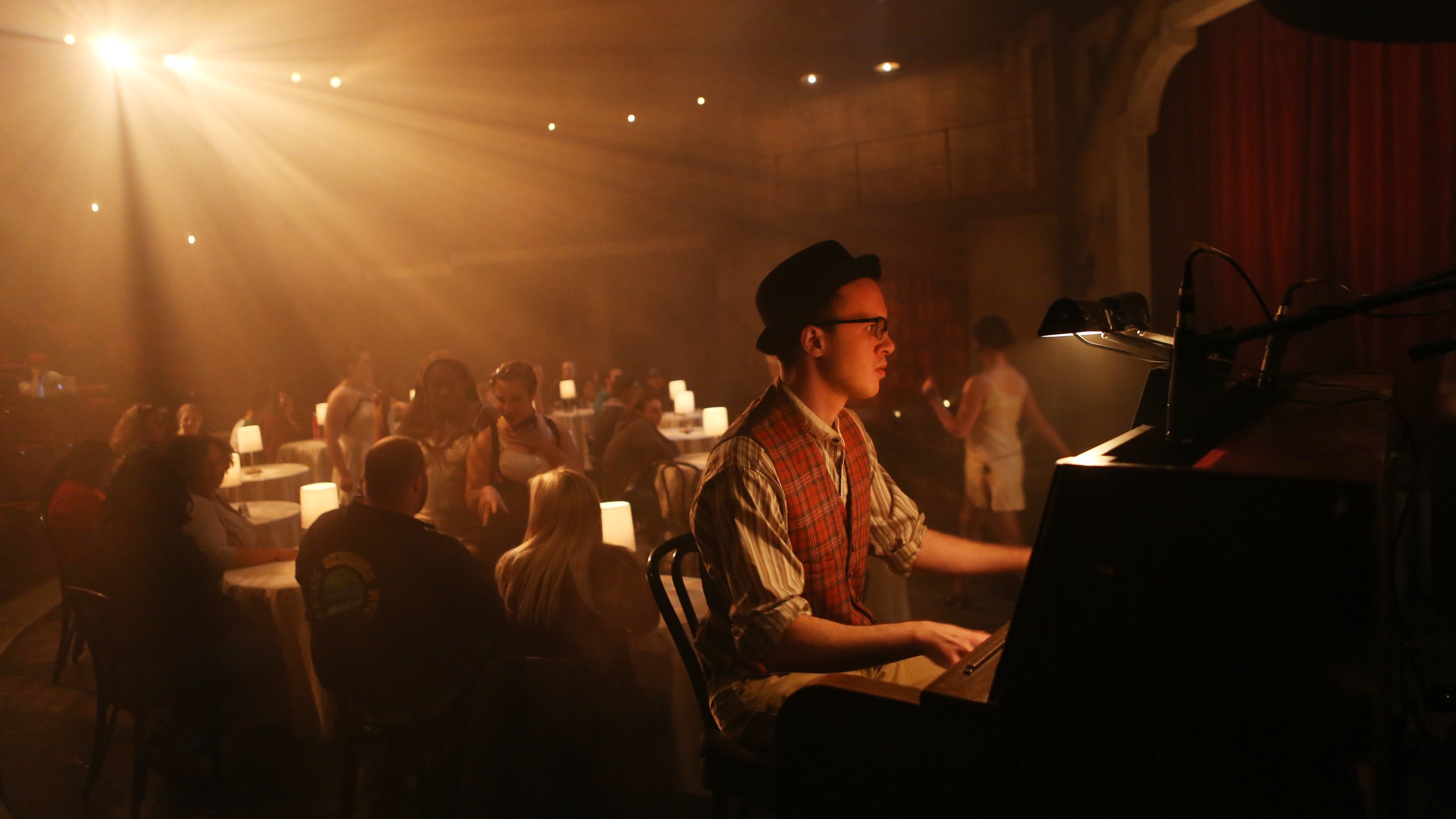I mix artistry, scholarship, and pedagogy
to create dynamic, adaptable, and rigorous environments in which college students succeed as scholars, artists, and individuals.
In my twenty-year career in theater, I have bridged teaching, directing, dramaturgy, and research; these simultaneous interests equip me to serve the needs of students of myriad experience and expertise levels, from advanced students studying theater pre-professionally to students who are brand new to the art form.

I structure every class - be it a lecture, a seminar, a directing lab, or a rehearsal—the same way that I structure a successful production.
Just as the first few minutes of a production must help the audience understand the rules of the world of the play, so must the first few minutes of a class create for students a roadmap for the learning to come. And just as a good production varies its approach in the way that it reaches audiences, so does an effective class employ a multitude of modalities for engaging students. I vary my instructional methods within each class, thus reaching all students, just as I add new elements to the distinct beats of each show I direct to engage all theatergoers. In the same way that an effective scenic transition or costume change engages an audience, so does a transition from group discussions to writing exercises to on-your-feet practice engage my students.
I strongly believe that no venue better affords students the opportunity to prepare for citizenship than the learning by doing required in theater.
My teaching always returns to the ways in which the skills I impart prepare students not only for a career in the arts but for a dignified, grounded, well-informed life. I believe that teaching students to perform on stage fosters accountability and understanding in a way that creates self-examined, responsible citizens. Theater insists that we imagine what it is to be someone else, and therefore teaches empathy, self-confidence, and articulation. These goals are always at the heart of my teaching.
This commitment to citizenship through artistry is most fully displayed in my commitment to teaching collaboration.
I believe that theater is the most collaborative of art forms; thus in every corner of my teaching I constantly infuse lessons in effective collaboration. I teach directing students both the history and current practice of collaboration between directors and designers, and then I model collaboration with my design colleagues in class. I not only encourage my playwriting students to work with actors and directors in workshop as they revise, but actually teach classes modeling effective workshop collaboration and require my students to learn about the contemporary new work development processes in place at places like New Dramatists, Oregon Shakespeare Festival, and the O’Neill Center. And I always encourage my acting students to keep their focus on their scene partner, their director, or their surroundings instead of turning within for answers.
Although my foci are directing and dramaturgy, I take pride in being a generalist. Whether I am helping students write a research paper, directing an actor, or advising a student director in tech, I approach pedagogy with an emphasis on adventurous, rigorous, experiential learning. When working with undergraduates, my tactic as an instructor is to tailor teaching to the skills and needs of each student. Having taught at a variety of institutions, from a CUNY campus to an Ivy League university to a small liberal arts college to a conservatory, I have come to appreciate the different styles in which each student learns and the importance of reaching each student individually. My ability to reach students of myriad backgrounds and experience levels has been cultivated by my affiliations with the Association for Theater in Higher Education, the Arts Education Roundtable, the Empire State Partnerships, and my previous career as an education director, teaching artist, and freelance director, and is evidenced by the sterling student and peer evaluations I have received at vastly differing institutions in all strata of curricula.




